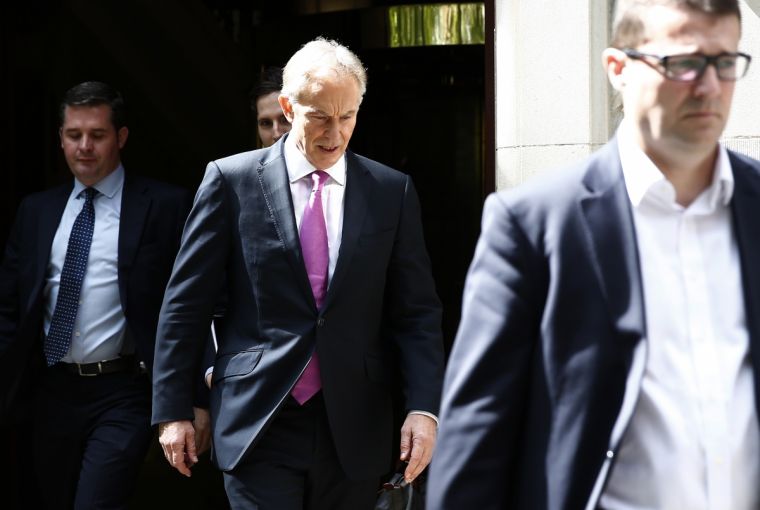Tony Blair and Iraq: The world is better off without Saddam Hussein

The morning after Labour's landslide victory in the 1997 general election, I was dispatched by The Times to interview Peter Thomson, the Australian Anglican priest who was at St John's College Oxford with Tony Blair and was regarded widely as a key influence on the faith and spirituality of the future Prime Minister.
We chatted over Thomson's kitchen table in London, him looking slightly stunned as he sat bathed in a glow of unexpected victory. Thomson rarely spoke publicly about Blair after that, until his death in 2010.
The phrase that stands out in my memory, and on which he placed most emphasis, was that Blair was "for real". He said he could be trusted. The wholesome image, the fine words, the sentiments and principles that had carried him to Number 10 as the youngest Prime Minister since 1812, were all completely genuine, Thomson said. Blair was the real deal. He told the truth, and everything he said, he meant.
This was from an ordained priest, a man who gave much of his subsequent life to anonymous but relentless hard work helping some of the most deprived communities in London. Thomson acted on his principles, and this was what he urged his spiritual protégé to do. There was no reason to doubt him then, and I see no reason now.
Another source, again a committed Christian, who was once reasonably close to Blair spoke to Christian Today. "He believed his actions were good and right. He believed Saddam Hussein was bad, and so did the Iraqi people."
There was a view that even without WMDs, Hussein's slaughter of the Kurds alone was enough to justify intervention.
The failure came in the lack of understanding of the consequences, in terms of sectarian division and the lack of an adequate post-conflict plan.
As the man who pulled down the statue of Saddam Hussein has lamented, then there was just one tyrant. Now there are a thousand.
The source added: "I thought Blair was treated quite harshly at the time but when we look back now, it is a terrible legacy. I'm not a huge enthusiast either of the number of homes he owns or the fortune he has made. He does not live now like a socialist."
Perhaps it could be possible for a moment to take a step back, and look afresh at the event of Iraq from that perspective.
The reputation of the Labour Left as champion of the stop-the-war movement is what dominates public consciousness now, and has done for years, from the last days of the war in Iraq through the regrettably long process of getting Chilcot from the table to the page.
But there is another narrative, and this is the rise of the Saddam Hussein from the 1968 coup that brought his Ba'ath Party to power in Iraq and his subsequent ruthless reign as vice-president to al-Bakr. We must just never forget the absolutely terrible suffering of the Shi'a people and the minority Kurds, Saddam's poisonous hatred for the US, his attack on Kuwait, his scud missile assaults on Israel, a dictatorship in which hundreds of thousands of his own citizens were murdered by horrific methods. Britain's Labour Party had a long history on the left of opposition to his Ba'ath Party. He was an evil monster and the world needed to be rid of him.
We can't by definition know what would have happened in the world had there been no invasion, had Saddam Hussein been allowed to remain in power. But we can speculate in an informed way that the consequences of failing to act would have been serious on many fronts, especially if Saddam Hussein had been able in the end to pursue his ambitions to manufacture WMDs.
The Labour Party tradition that Blair inherited in the post-war environment was that intervention should not be demurred from by default. Supporting intervention in Korea in the 1950s was an example. It's been a real cornerstone of Labour's international mission that it is a good job well done if a tyrant is dethroned.
This informed Labour policy not just towards Iraq but Libya as well.
The outcomes in both cases have not exactly been brilliant, it goes without saying, but we cannot know how much worse they might have been.
As in Iraq, in Libya, much responsibility for the disasters now unfolding, as evidenced by the flood of refugees and the accompanying humanitarian tragedies, can be placed as much at the door of inadequate post-conflict planning as at the interventions themselves.











